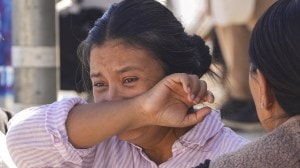WTO chief says trade deal is good, members should reach consensus
WTO chief Pascal Lamy is self-admittedly the only non-negotiating party in the global trade deal and believes he...

WTO chief Pascal Lamy is self-admittedly the only non-negotiating party in the global trade deal and believes he should have taken his wife’s advice and gone on a long holiday after the failure of the mini-ministerial meeting in Geneva last month. But barely three weeks after the collapse of the Geneva meeting, Lamy is once again pushing key negotiators to agree for another meeting by the end of this year. Speaking to Jayant Singh, Lamy said that the hope of reviving the Doha round hinges on members realising that what they have on the table right now is a good package and they better grab it
After interacting with representatives from all member nations, do you sense that their desire to achieve an agreement is strong enough to supersede their individual political sensibilities and ambitions?
That’s what they say. That’s what they have always been telling me, including after the July (mini-ministerial in Geneva) flop, which is a bit surprising. Everyone wants to achieve the deal and they know that what is on the table at present is a good package. It would only be in their best interest to reach a consensus on that agreement.
Why is it that the WTO text allows for a provision on ‘trade-distorting subsidies’ when the very objective of the agreement is to enable free and fair multilateral trade?
It is a legacy of the previous trade rounds. Up until the Uruguay round, there wasn’t any discipline on trade distorting farm subsidies. There were, of course, disciplines that took into account industrial subsidies by the developed countries, but agricultural subsidies were not even considered till then.
It was only at the beginning of the Uruguay round that developing countries called for the inclusion of agricultural subsidies in the agreement. So, we then established the concepts of amber box, blue box and green box under which subsidies were classified as trade distorting and non-trade distorting and capped it at different levels for developed and developing countries. This was multilaterally agreed upon by all member nations. Now all they have to do is decide on a specific number for these subsidies.
Does the rift between India and Brazil over the issue of special safeguards (SSMs) leave the G-20 weakened? If so, how will it affect trade negotiations?
In the July meeting, every point on which the G-20 had agreed before, was multilaterally agreed upon. The only point on which there were differences within the G-20 — SSMs — there was no agreement. The situation at the end of the July meeting was very similar to the G-20 proposal in October 2005.
Do countries outside of the G-7, especially smaller nations, find it unfair to be left out of key negotiations?
It is inevitably difficult to have an arrangement where every member nation gets a fair say in the negotiations. Unlike other international organisations, we don’t have security councils or quotas or voting rights. Instead, we work by consensus. All members have to be in consensus for us to have an agreement. The way to build this is by having discussions in concentric circles. This is something we’ve had for 60 years. What has now changed, however, is the constitution of these groups.
The core negotiating group has changed from the Quad — Canada, EC, Japan and the US — to the G-7, which constitute about 80 per cent of world trade. After the G-7 reaches a consensus, we move to G-30 and then to all the 150 members. Everyone would love to be a part of the G-7 or the G-30, but it is not possible. We, however, do have shared meetings with other members over relevant matters.





- 01
- 02
- 03
- 04
- 05


























